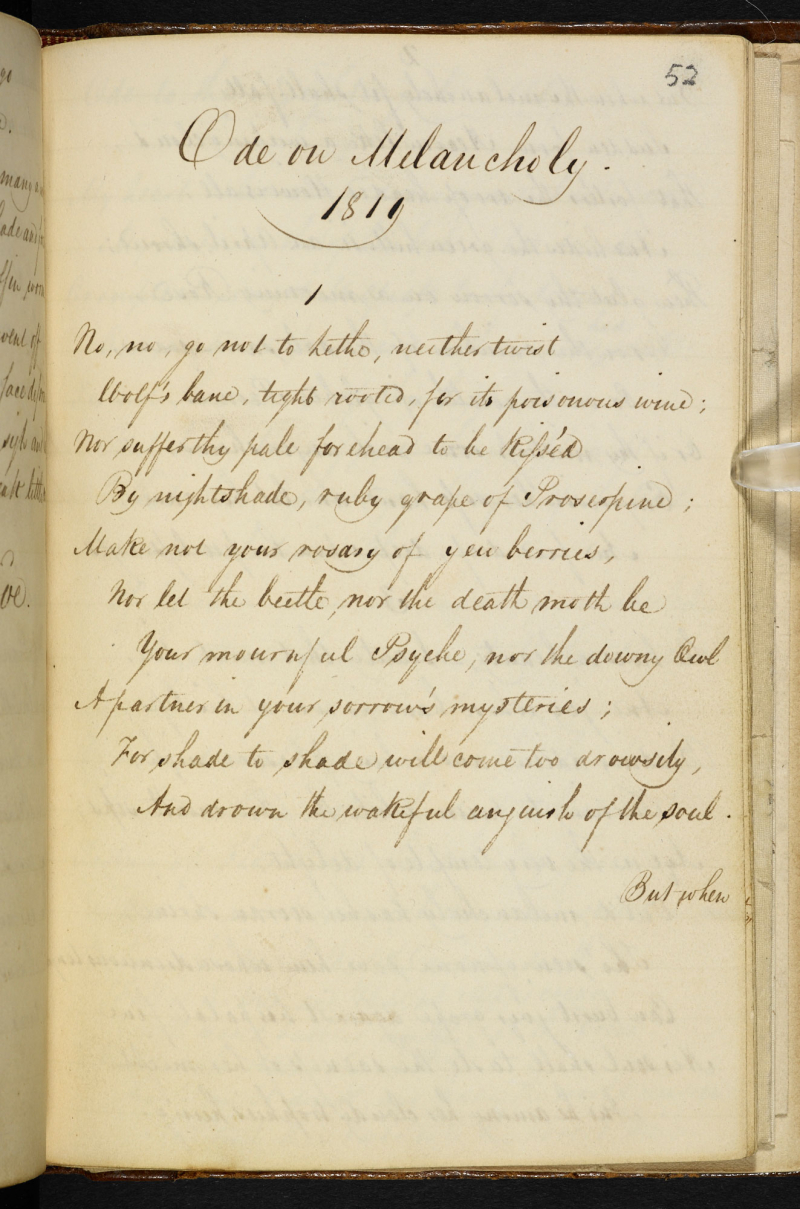Ode on Melancholy
Excerpt:
She dwells with Beauty—Beauty that must die;
And Joy, whose hand is ever at his lips
Bidding adieu; and aching Pleasure nigh,
Turning to poison while the bee-mouth sips:
Ay, in the very temple of Delight
Veil'd Melancholy has her sovran shrine,
Though seen of none save him whose strenuous tongue
Can burst Joy's grape against his palate fine;
His soul shalt taste the sadness of her might,
And be among her cloudy trophies hung.
Keats' development as a poet occurred between the winter of 1818 and the majority of 1819. His most notable works, including the six famous odes "Ode on a Grecian Urn," "Ode on Indolence," "Ode on Melancholy," "Ode to a Nightingale," "Ode to Psyche," and "To Autumn," were written during this time.
In contrast to Keats' previous odes, the speaker in Ode on Melancholy addresses the reader directly rather than an item or a feeling. It is the smallest of Keats' famous odes, with only three stanzas of ten lines each. Additionally, he later deleted its opening verse, possibly because he felt it was unnecessary. He basically advises the reader in this verse to refrain from acting inappropriately in the face of sadness. He gives the reader advice on what to do in the second verse as an alternative to the things he forbids. He illustrates how pain and pleasure are inexorably intertwined in the final stanza.
Type: Ode
Published: 1820











